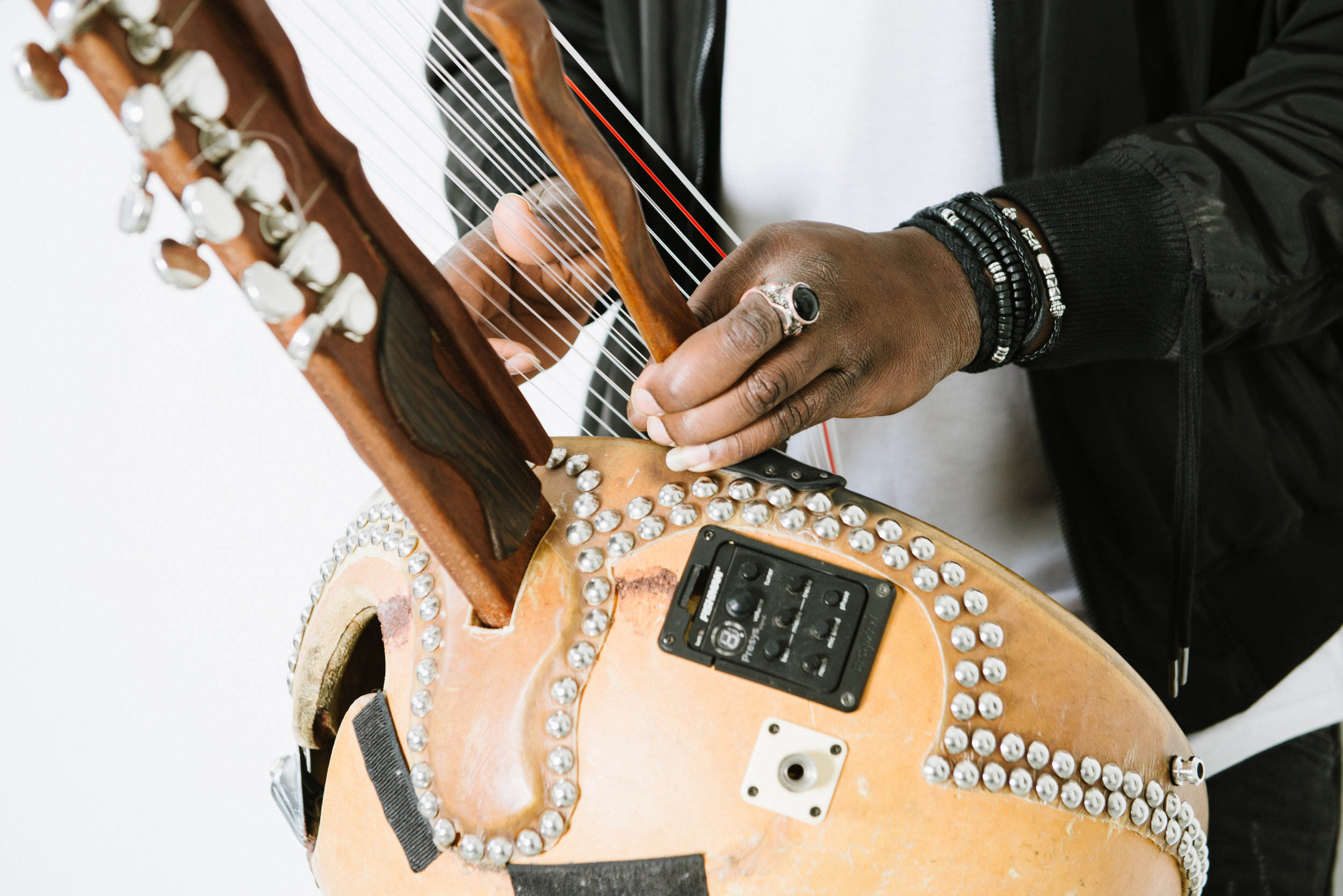the kora
The kora is a classical instrument of West African jalis (griots), the historical keepers of oral tradition and praise songs. The kora is often accompanied by singing and percussion. The unforgettable music is soothing, almost hypnotic, and is said to have very real curative properties.
The kora’s body is made from a calabash gourd cut in half and partially covered with cow hide. Traditionally there are twenty-one strings plucked by the thumb and forefinger of each hand. The remaining fingers grip the two vertical hand posts. For the strings, players use nylon fishing line, which provides a brilliant tone and is easily obtained at the local markets.
Twenty-one anchor strings attach the playing strings to an iron ring bored through the base of the kora’s hardwood neck. The player tunes the kora by moving leather rings on the neck to provide the appropriate tension on each string. More recently built koras often have guitar tuning machine heads (like the one you see here).
Kora players use a variety of tunings and the most common ones are sillaba, sauta and tomora. Sousou and Maher Cissoko often plays the 22-string "kumbengo" koras from the Casamance (southern Senegalese), giving the instrument a distinctive timbre and an extra base note.
At Jaliya Camp you have the opportunity to study kora in a safe and beautiful environment and at the same time being connected to one of the most famous kora playing families in the world!
If you need to purchase a kora we have contacts with some of the best builders in the region and we also have some koras for sale at Jaliya Camp.
Photo: Jenny Baumgartner
Listen here!
Here the kora is played by Maher Cissoko from his Solo album "KORA FO" - The kora speaks! Filmed and edited by Stefan Erdman by the beach right next to Jaliya Camp.


